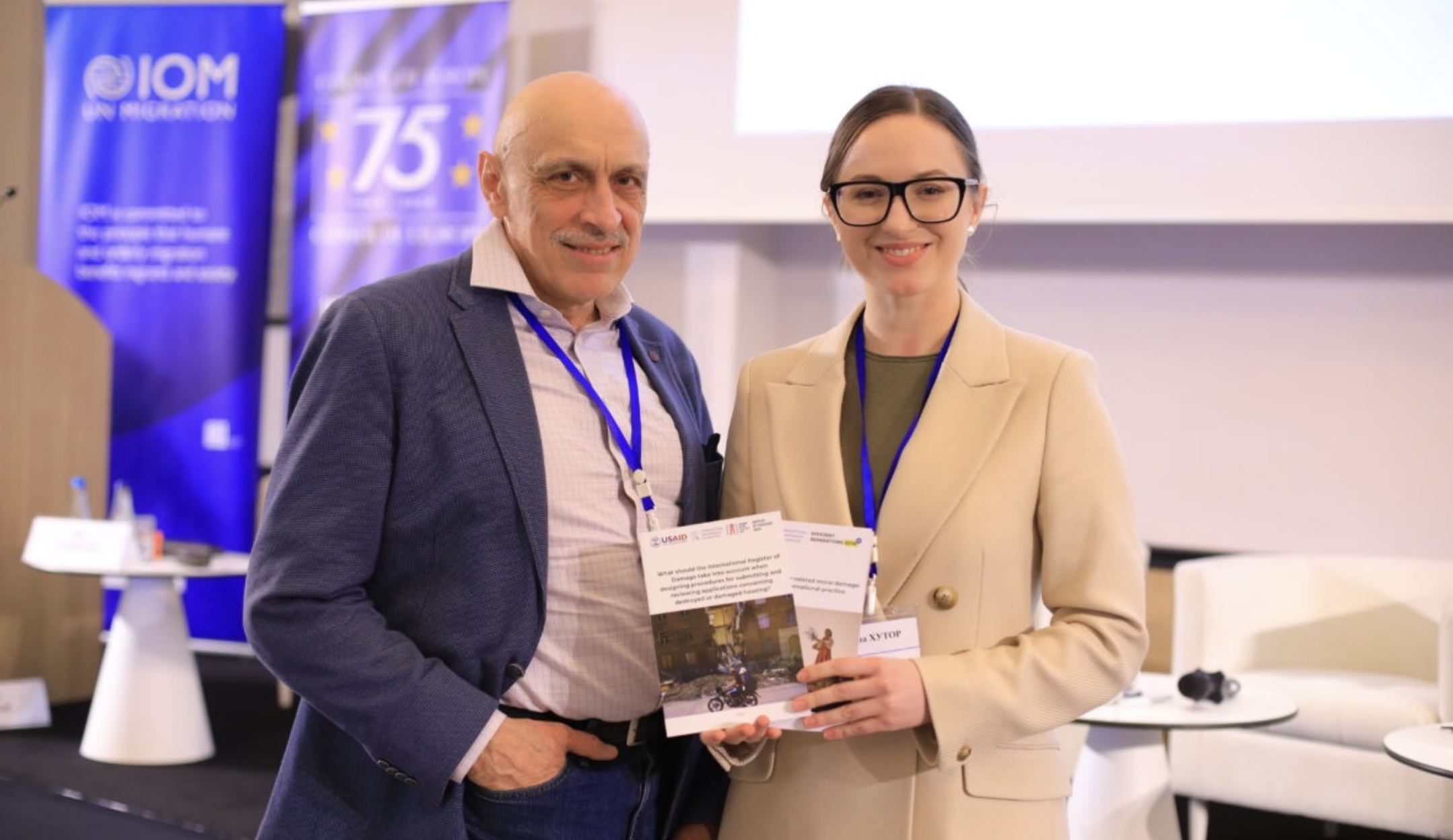
On 2 April, the International Register of Damage Caused by the Russian Aggression against Ukraine started accepting applications
During the first day of the Register's operation, 510 people have already submitted applications.
Tetyana Khutor, the Head of the ILI, together with Oleksandr Pavlichenko, the Executive Director of the UHHRU, presented what the International Register of Damage should take into account when determining the mechanisms for submitting and reviewing applications for destroyed or damaged housing at the high-level roundtable ‘Compensation for Destruction, Losses and Injuries Caused by the Russian Aggression against Ukraine’, organized in Warsaw by the International Organization for Migration (IOM), the Council of Europe, and the USAID Justice for All Program.
An urgent question now is how victims should prove the damage they have suffered and the amount. Our analysis of the practice of the UN Compensation Commission shows that the approach to proving war-related damage should be flexible and sensitive to special circumstances.
Taking into account the realities on the ground and administrative practices is necessary to ensure that the burden of proof is realistic and not overwhelming, as during war, owners of destroyed or damaged property may have difficulty filing claims due to the inability to provide evidence to prove their ownership or describe the nature of the damage.
For example, the property may be located in temporarily occupied territories or close to a war zone, and the documents proving ownership may be destroyed, damaged, or inaccessible.
We cannot allow war victims to be deprived of their right to compensation due to such obstacles. That is why the phenomena that affect the possibility of proving damages in war conditions should be taken into account when determining the evidentiary standards in the work of the Register of Damages.
We hope that these peculiarities of proving war-related damages will be taken into account by the Register. The Institute will continue its analytical and advocacy work to accelerate the receipt of compensation by victims of war and bring the aggressor state to justice.
The material was prepared with the support of the International Renaissance Foundation within the framework of the Efficient Reparations Now project, implemented by the Institute of Legislative Ideas and with the support of the United States Agency for International Development (USAID) within the framework of the Human Rights in Action Programme, implemented by UHHRU. The material reflects the position of the authors and does not necessarily reflect the position of the International Renaissance Foundation and the United States Agency for International Development (USAID).



